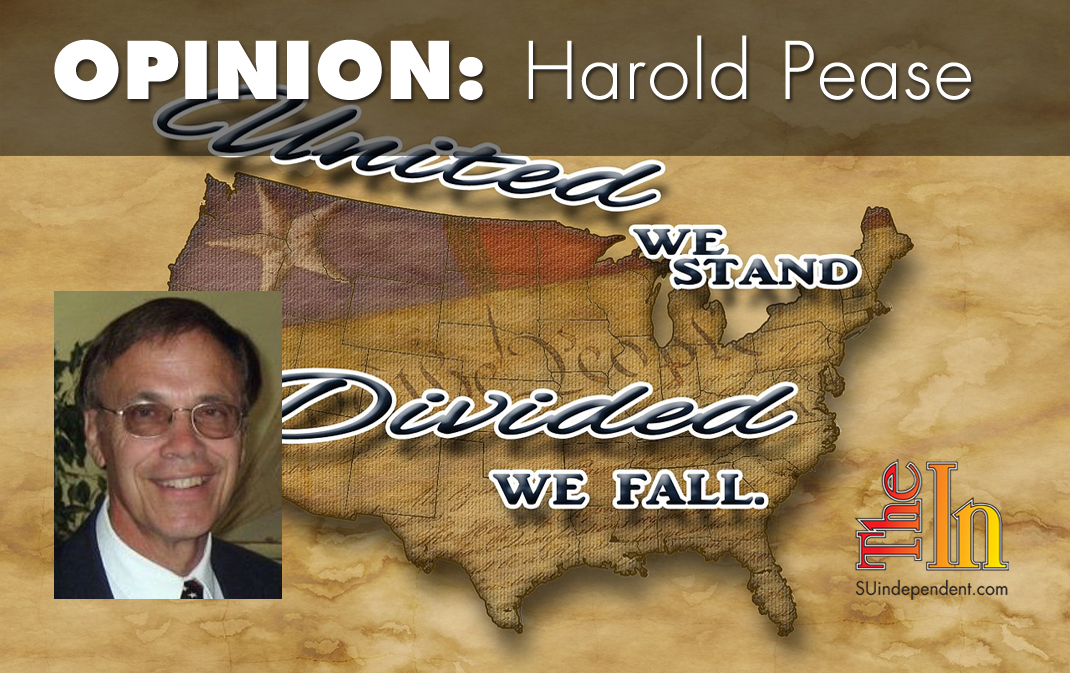
House-passed Equality Act violates the Constitution
Neither the words “equality” nor “discrimination” are found in the U. S. Constitution, nor are they implied, and no new amendment to the Constitution has been added moving either from a state to a federal prerogative, which is the required path detailed in Article V for enlarging the powers of the federal government. State delegates formed the U.S. Constitution, and they gave the federal government no power over human association. We naturally discriminate between philosophies, organizations, and people we wish to embrace, date, or avoid — even whom or what we like. We call it freedom.
Now the House of Representatives, presently controlled by the Democratic Party, wishes to impose upon us restrictions over human associations without a new amendment to the Constitution. Under the misnamed Equality Act, it wishes to enshrine “sexual orientation” and “gender identity” to the 1964 Civil Rights Act, outlawing discrimination respecting race or sex in employment, housing, and public accommodations. What it does in practice is to “allow the government to impose a belief system about sexual decisions and sexual behaviors on the nation.” The act is basically government-sanctioned discrimination against religious people. If government is empowered to manage human associations, it manages everything.
So how would the misnamed Equality Act violate the Constitution? Remember that the Founding Fathers created a system called federalism that recognized the principle of dual sovereignty between the states and the federal government, neither the master nor slave of the other — the states to have domestic dominance, the federal government foreign policy dominance.
The Constitution restricts the federal government (the executive, legislative, and judicial branches) to the enumerated clauses housed in Article I, Section 8. In this, it was restricted to four areas of federal law: to tax, to pay the debts, to provide for the general welfare, and to national defense. To restrict the federal government from enlarging its power, which is its natural tendency to do, the last two of the four grants of power, general welfare and national defense, each required an additional eight clauses giving greater restrictive clarity.
Neither equality nor discrimination were named, or implied, as a function of the federal government. The eight clauses of general welfare benefited citizens equally and at the same time. None made distinctions between types of people or human associations.
All powers not specifically listed or added later to the Constitution by way of the Amendment process outlined in Article V were left to the states. There exist no new powers to distribute. The states retain all power that they did not specifically give to the federal government. The federal government can only expand its power at the expense of the states by distorting or ignoring the existing list.
This can be done only when the people are ignorant of the Constitution or do not care. Proponents of the Equality Act include both.
Even with this clarification, states, fearing that the federal government might still attempt to grow at their expense, refused to ratify the Constitution without additional restrictions on it, hence the Bill of Rights. But none of these housed equality or discrimination. The Bill of Rights ends with the clarity of Amendment 10: “The powers not delegated to the United States by the Constitution, nor prohibited by it to the States, are reserved to the States respectively, or to the people.”
So neither equality nor discrimination are in the Constitution or Bill of Rights, but the word “equal” (not the same as “equality”) is in the 14th Amendment. This was a Civil War amendment (1868) designed to ensure that the rights of ex-slaves were protected as the South attempted to re-enslave them through legislation. It reads in part, “No state shall … deny to any person within its jurisdiction the equal protection of the laws.” One cannot pluck out this phrase and give it new meaning outside the context of its origin: to protect freed men from slavery.
But there is another problem with the broad use of the phrase “equal protection of the laws” used out of context. This phrase applies only to law already constitutional, and that has to have a solid base in the listed powers of Article I, Section 8 or in a new amendment to the Constitution ratified by three-fourths of the states as required by Article V. Any other interpretation destroys the Constitution as designed.
The Equality Act has no origin in the Constitution and thus is unconstitutional. If passed, it would violate a large part of the First Amendment, especially the free exercise of religion, speech, and press. It opens up myriad new laws on human association, also without constitutional basis. Neither equality nor discrimination can be defined, and certainly not guaranteed, without Orwellian governmental control. Perhaps that is the intention.
The viewpoints expressed above are those of the author and do not necessarily reflect those of The Independent.
How to submit an article, guest opinion piece, or letter to the editor to The Independent
Do you have something to say? Want your voice to be heard by thousands of readers? Send The Independent your letter to the editor or guest opinion piece. All submissions will be considered for publication by our editorial staff. If your letter or editorial is accepted, it will run on suindependent.com, and we’ll promote it through all of our social media channels. We may even decide to include it in our monthly print edition. Just follow our simple submission guidelines and make your voice heard:
—Submissions should be between 300 and 1,500 words.
—Submissions must be sent to editor@infowest.com as a .doc, .docx, .txt, or .rtf file.
—The subject line of the email containing your submission should read “Letter to the editor.”
—Attach your name to both the email and the document file (we don’t run anonymous letters).
—If you have a photo or image you’d like us to use and it’s in .jpg format, at least 1200 X 754 pixels large, and your intellectual property (you own the copyright), feel free to attach it as well, though we reserve the right to choose a different image.
—If you are on Twitter and would like a shout-out when your piece or letter is published, include that in your correspondence and we’ll give you a mention at the time of publication.
Articles related to “House-passed Equality Bill violates the Constitution”
California’s solution to overpopulation and inequality? More immigration.




Can’t the equality act also be argued as constitutional under the Equal Protection Clause of the 14th amendment?